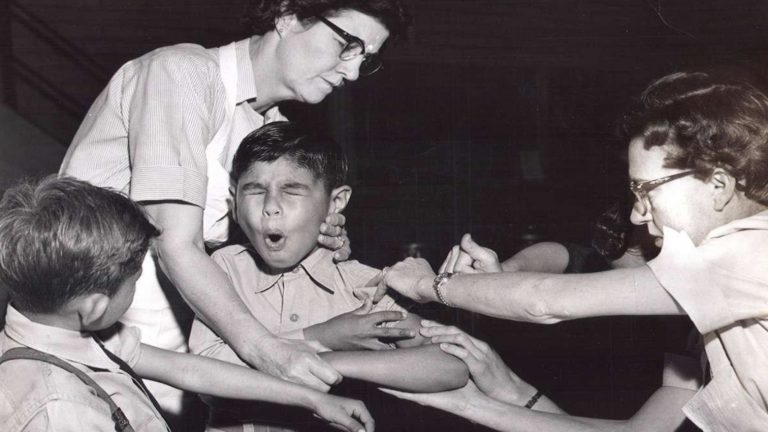When was the last time you exercised autonomy over your own body? Did you decide to have breakfast this morning? What clothes to wear? What to have for lunch or simply if you want to drink coffee or tea during work? All these simple human everyday actions are the materialization of something called bodily autonomy. Truthfully, it doesn’t matter if you are having sex or undergoing a medical treatment, but if one or the other is being done to you against your will, something is absurdly wrong for one simple reason: it lacks your consent.
Perhaps, the important question we should be asking ourselves is: who has ultimate and legitimate ownership over our bodies? It is simply indisputable by its own nature that we are the sole proprietors of our own bodies. In order to practice any legitimate human action, you have to physically and mentally own yourself. Therefore, our body is our first private property and no one, not even the government, is entitled to claim ownership over it.
Just because something is good, it doesn’t mean it should be mandatory. Just because something is bad, it doesn’t mean it should be prohibited.
Everyone knows vitamin C in moderation is good for you. Does that mean the government should have the power to force you to take vitamins every day? Conversely, sugary beverages are extremely unhealthy for you, and people who consume them regularly (1 to 2 cans a day or more) have a 26% greater risk of developing type 2 diabetes than people who rarely have such beverages. Should the government ban cokes, sweet teas, and force Starbucks to only sell decaf coffee with no cream since caffeine isn’t that healthy either?
What is truly at stake here is the human freedom to make choices that sometimes may be bad and sometimes may be good for each individual who makes that choice. There is no amount of good or healthy actions that the government can mandate that will outperform the benefits of life with freedom of choice. Government cannot legislate people out of death by simply passing a law that tries to modify human behavior.
It is undeniable that vaccination has helped many individuals to be healthier and prevent various types of diseases, but a positive medical outcome out of a substance does not justify the obliteration of people’s bodily autonomy. Neither you nor I have the right to impose our will on our neighbors’ personal preferences regarding their bodies and overall health, even if what we want would possibly benefit them. We don’t own their bodies and neither does the government.
If central authority is a legal representation of society, and it can only operate within the limits of power that we grant unto them as individuals, then, by all means, government does not have the right to coerce people to get vaccinated precisely because as individuals we do not have that right to transfer it to the government in the first place.
But if the vaccine is something good, why are people still refusing the jab?
If we are being honest here, we could easily conjecture (and we would probably not be wrong in our assumption), that the main reason for vaccine hesitancy is a combination of high levels of government distrust combined with the government obsession with the vaccination. The more the government pushes for it, the higher is the increase in the hesitancy amongst the unvaccinated.
When politicians with no medical expertise are the ones pushing for a medical act such as vaccination, people tend not to listen, and for a good reason; they are not your physician. A health crisis that has been utterly politicized lost its seriousness in the eyes of those who do not agree politically with the politicians in power trying to make personal medical decisions into a collective one. In what world would people choose to voluntarily trust a medically incompetent politician over their trusted unbiased physicians?
The next logical question is: what can the government do to decrease vaccination hesitancy? Well, how about recognizing and respecting people’s bodily autonomy in the first place? For two reasons: one, because it sends a powerful message of respect; two, because individuals who feel respected tend to trust people more when they are not trying to force things upon those individuals.
Here’s what the government should be saying: “We believe this vaccine is effective and safe to be taken and the data shows us that, but ultimately, it is your choice to decide whether or not to take it. Talk to your physician in order to make an informed decision.” Rather, what the government is really saying today is: “Do this or else…” and by acting authoritatively, it is automatically implied that the government does not care about people’s personal reasons to refuse the vaccine. What the government has failed to understand so far is that medical decisions are the most personal type of decision for individuals.
Now, if you are an advocate for mandatory vaccines and all of the unintended consequences that may arise out of it, and you believe in the idea of government owning people’s bodies by forcefully injecting substances into them and imposing societal conditions in order to force us to comply with a mandatory vaccine, do you honestly believe there is anything else left that the government can’t do?
Ultimately, even if the government was to make vaccines mandatory, people would still refuse it and fight their way around it for a simple reason: people do not respond to laws, they respond to incentives, and the best way to try to respectfully inform and incentivize the unvaccinated is by providing them with data that reveals that despite their high level of distrust in the vaccine, being vaccinated has seemed to be far less risky than relying on never contracting COVID-19 while unvaccinated or contracting it being unvaccinated. The best vaccination campaign any government can promote is summarized by a combination of two factors: informed consent as well as the respect for the principle of bodily autonomy.














Add comment